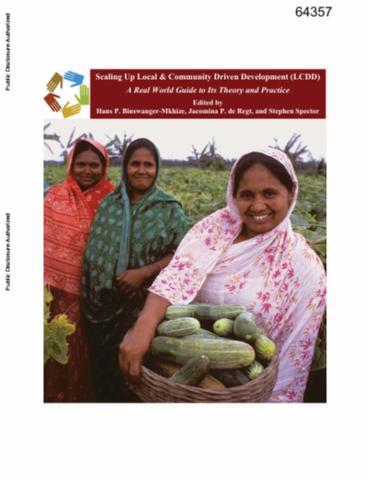Scaling up Local and Community Driven Development
Local and Community Driven Development (LCDD) is an approach that gives control of development decisions and resources to community groups and representative local governments. Poor communities receive funds, decide on their use, plan and execute the chosen local projects, and monitor the provision of services that result from it. It improves not just incomes but people's empowerment and governance capacity, the lack of which is a form of poverty as well. LCDD operations have demonstrated effectiveness at delivering results and have received substantial support from the World Bank.




